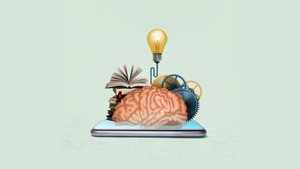OpenAI Defends Use Of Copyrighted Content Following New York Times Lawsuit
OpenAI has responded to claims by The New York Times that the organization "intentionally manipulated prompts" to showcase instances where ChatGPT mimicked content from the newspaper. This response came in the form of a blog post following a copyright infringement lawsuit filed by The Times against OpenAI.
OpenAI's Stance
OpenAI argued in the blog post that using copyrighted content for training AI models falls under fair use. Despite this, they have implemented an "opt-out process" to respect the wishes of content creators who do not want their work used in this manner.

"Training AI models using publicly available internet materials is fair use, as supported by long-standing and widely accepted precedents," the organization stated. They emphasized the importance of this practice for innovation and US competitiveness.
Addressing Concerns
Regarding ChatGPT's replication of content, OpenAI described it as "a rare bug" and explained that the model's learning is based on a vast array of human knowledge. They pointed out that any one source, such as The New York Times, is just a small part of the model's overall training data.

OpenAI also raised suspicions about the prompts provided by The Times, suggesting that they may have intentionally influenced the model's output. They noted that the examples cited were often from older articles that had been widely circulated on third-party websites.
Legal Ramifications
The lawsuit filed by The New York Times marks the first instance of a major media organization taking legal action against an AI platform. Not only OpenAI but other entities, including individuals like Sarah Silverman and John Grisham, have also faced similar litigations.
According to Ian Crosby, lead counsel for The New York Times, the blog post from OpenAI inadvertently admits to using the newspaper's content to develop ChatGPT. This, in the eyes of The Times, constitutes an attempt to benefit from their journalism without authorization, which they argue is not fair use.

In conclusion, the clash between OpenAI and The New York Times underscores the complex intersection of AI technology and copyright law, setting a potentially precedent-setting legal battle in motion.




















